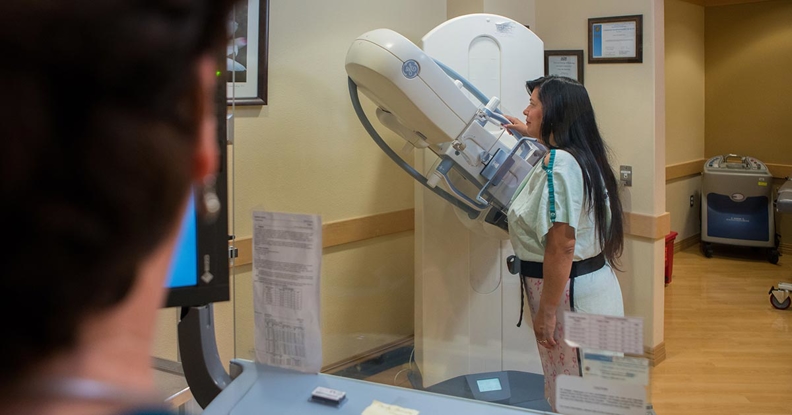Breastfeeding Benefits for Mom and Baby
- Category: Breast Cancer
- Posted On:
- Written By: Kayla Benado, IBCLC

The American Academy of Pediatrics has made it a key policy to support and encourage exclusive breastfeeding for the first six months of an infant’s life. And to further emphasize the importance of breastfeeding, the academy suggests that mothers breastfeed for the child’s first year of life and beyond, if “mutually desired” by mother and infant.
There are so many reasons for that suggestion – breast milk provides nutritional components such as antioxidants, enzymes, immune properties and live antibodies from the mother.
About four months into the pregnancy, a mother begins producing colostrum, which is the first food babies receive in utero. Colostrum is full of active properties such as immune factors and growth promoters that are essential for life functions.
The health benefits of breastfeeding are numerous. Breastfed babies are reported to have:
- Stronger immune systems leading to fewer colds and respiratory illnesses like pneumonia and RSV (respiratory syncytial virus). A mother’s more mature immune system creates the antibodies to the germs to which she and the baby may have been exposed. The antibodies are passed to the infant through the breast milk, which helps to protect the baby from illness.
- Fewer gastrointestinal issues like diarrhea, constipation, gastroenteritis, GERD (gastroesophageal reflux) and NEC (necrotizing enterocolitis). Immunoglobin A, which is found in colostrums and mature milk, coats and seals the lining of the baby’s intestines, which helps prevent pathogens from colonizing and leaking through.
- Fewer ear infections
- Lower rates of infant mortality
- Lower rates of SIDS (sudden infant death syndrome)
The benefits carry on from infancy into childhood, with breastfed youngsters having decreased levels of allergies, eczema, and asthma; fewer childhood cancers, including leukemia; lower risk of Type 1 and Type 2 diabetes and decreased risk of becoming obese.
Babies are not the only ones to benefit from breastfeeding. For mothers, breastfeeding promotes faster weight loss postpartum, with a mother able to burn about 500 calories per day by breastfeeding.
Mothers who breastfeed also have decreased risks of postpartum depression; breast cancer and ovarian cancer.
Research on the subject found that breastfeeding for up to six months was associated with a reduced risk for diabetes of 25 percent. Those mothers who breastfeed from six-to-12 months have a 48 percent reduced risk and breastfeeding for 12 months or more carries a 47 percent reduced risk.
The emotional benefits of breastfeeding are equally important – during breastfeeding, mother and baby have the skin-to-skin touching and eye contact, leading to a strong sense of bonding and security. The skin-to-skin contact also boosts a mother’s level of oxytocin, a hormone that helps breastmilk flow and can calm the mother.
The U.S. Office on Women’s Health suggests that formula can also be harder for a baby to digest, especially premature babies. In addition, as a baby gets older, a mother’s breastmilk adjusts to meet the baby’s changing nutritional needs. Researchers say that a baby’s saliva transfers chemicals to a mother’s body through breastfeeding, helping create breastmilk that specifically meets a baby’s changing needs.
Breastfeeding also has a financial benefit. Formula and feeding supplies can cost more than $1,500 each year. As a baby grows, he or she will need more formula. But because breastmilk changes with the baby’s nutritional needs, the infants need the same amount of breastmilk as they age.
At LVMC's Breastfeeding Mothers Support Group, speak to our lactation consultants and other mothers about your breastfeeding success stories, ask questions and learn tips. The group meets two Fridays each month at 10 a.m. in the hospital's board room. For privacy reasons, the group is open to women only.






